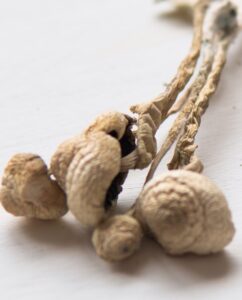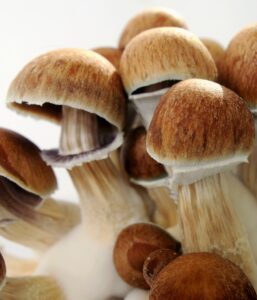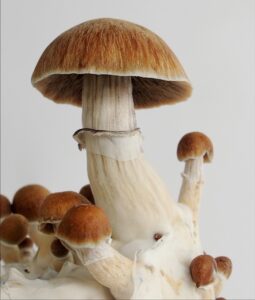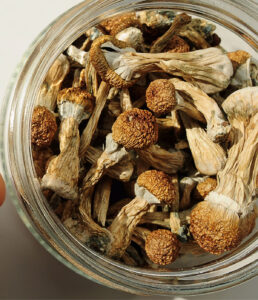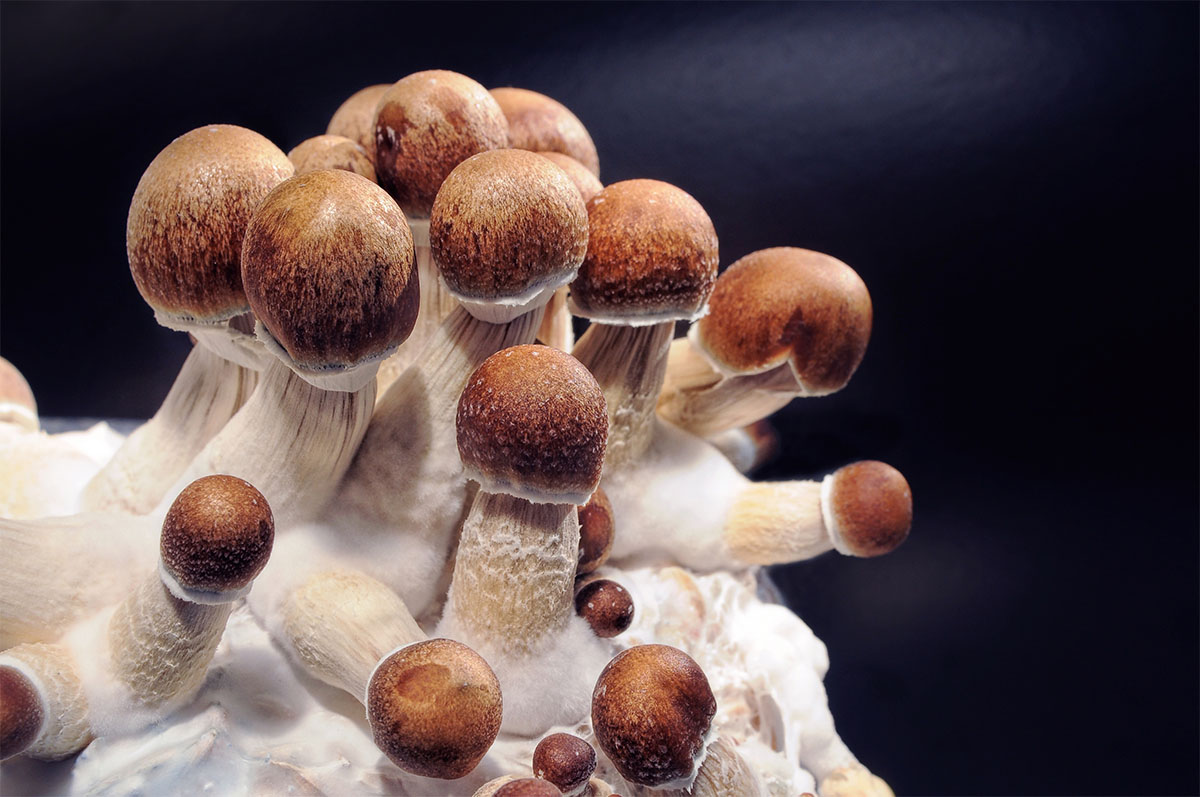
Summary of research paper by Shnayder et al., published in the Journal of Affective Disorders, on 15 February 2023.
The paper titled “Psilocybin-assisted therapy improves psycho-social-spiritual well-being in cancer patients” presents a comprehensive study on the efficacy of psilocybin, a naturally occurring compound found in certain species of psychedelic mushrooms, as a treatment option for improving the psycho-social-spiritual well-being of individuals diagnosed with cancer.
Cancer patients often experience significant psychological distress, including anxiety, depression, and a decreased quality of life. Traditional therapies have had limited success in alleviating these symptoms, which has led researchers to explore alternative treatment options. Psilocybin has gained attention in recent years due to its potential for facilitating transformative experiences and promoting mental health.
The study was conducted as a double-blind, randomized, controlled trial involving 80 cancer patients with varying types and stages of cancer. Participants were randomly assigned to one of two groups: the experimental group, which received a single dose of psilocybin (25 mg/70 kg), and the control group, which received a placebo. Both groups underwent preparatory psychotherapy sessions and follow-up integration sessions to support the therapeutic process.
The primary outcome measures assessed were changes in the following domains: anxiety, depression, quality of life, and spiritual well-being. Secondary outcome measures included existential distress, social support, and adverse effects. Assessments were conducted at baseline, one day, two weeks, and six months after the intervention.
The results revealed that psilocybin-assisted therapy significantly reduced anxiety, depression, and existential distress while improving the overall quality of life and spiritual well-being of the participants in the experimental group. Notably, these benefits were sustained at the six-month follow-up assessment, indicating a long-lasting therapeutic effect.
In comparison, the control group showed no significant changes in any of the primary outcome measures. The study also found that the psilocybin-assisted therapy was well-tolerated by participants, with few reported adverse effects.
The authors of the paper propose several potential mechanisms by which psilocybin may exert its therapeutic effects. One possibility is that the compound works through the serotonin 2A (5-HT2A) receptor, which is known to play a role in mood regulation and has been implicated in the pathophysiology of depression and anxiety disorders. Additionally, psilocybin may enhance neuroplasticity, promote the growth of new neurons, and facilitate the reorganization of neural networks, which could contribute to the observed improvements in psychological well-being.
The researchers also emphasize the importance of the psychotherapeutic context in which psilocybin is administered. They suggest that the preparatory and integration sessions, along with the supportive environment provided during the treatment, play a crucial role in maximizing the potential benefits of the intervention.
The study’s findings have significant implications for the treatment of cancer-related psychological distress. Psilocybin-assisted therapy has the potential to offer a safe and effective alternative to traditional treatments, providing long-lasting improvements in the psycho-social-spiritual well-being of cancer patients. However, the authors acknowledge the need for further research to better understand the underlying mechanisms and to optimize the therapeutic approach.



